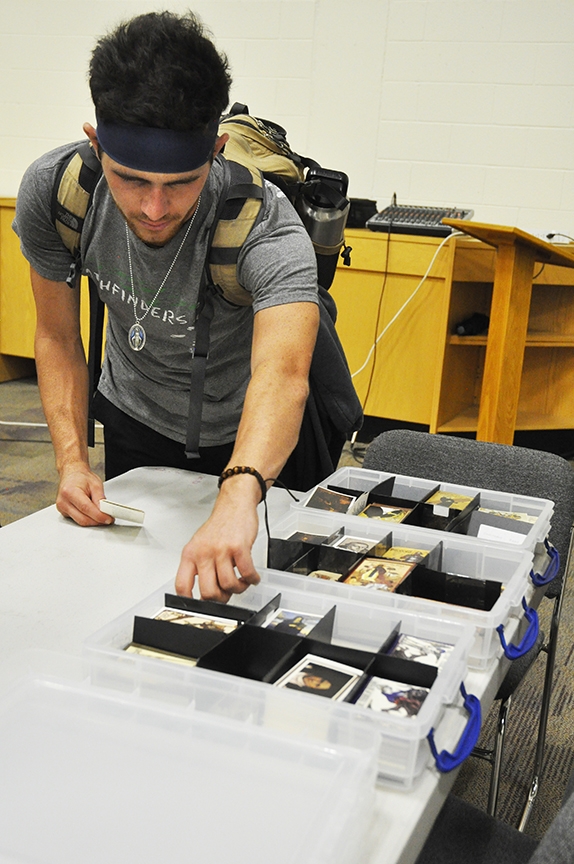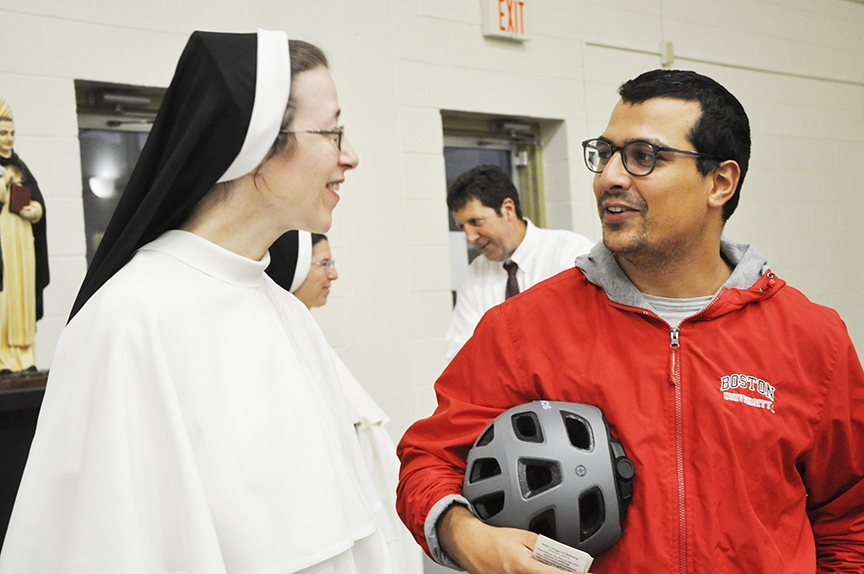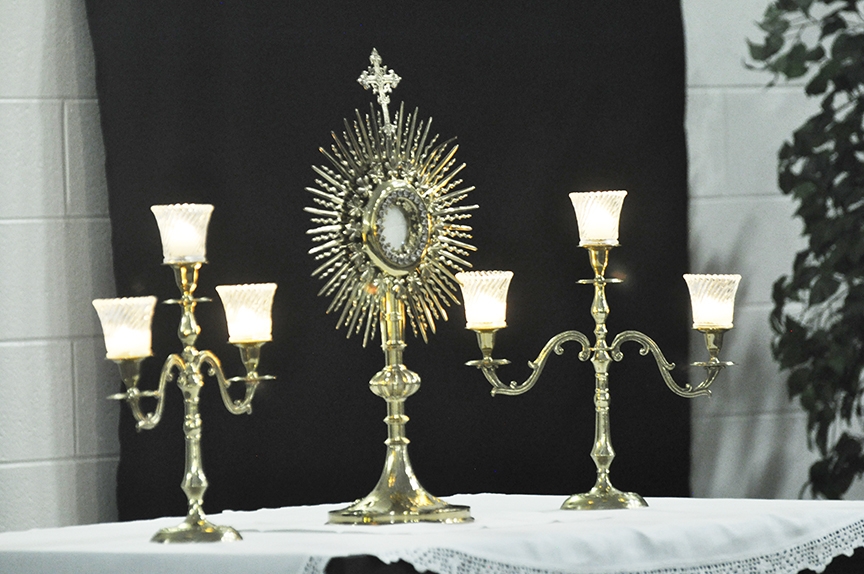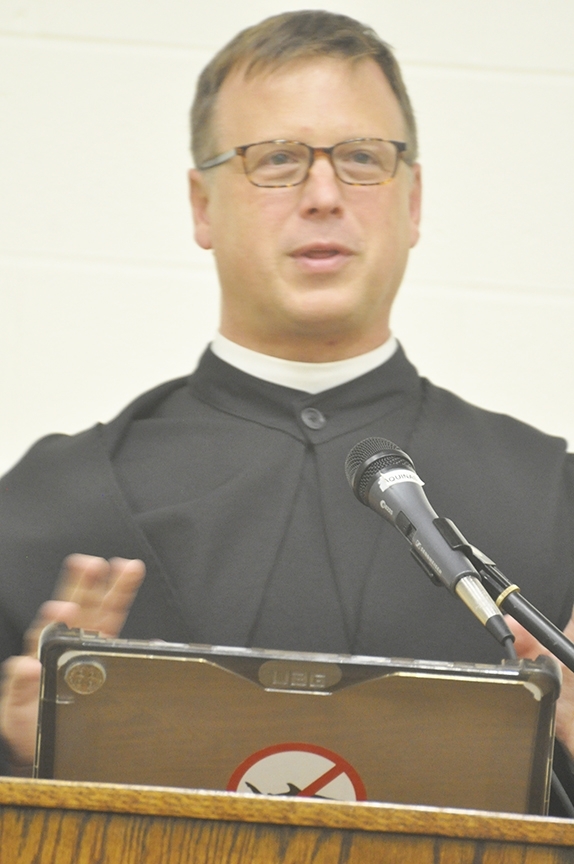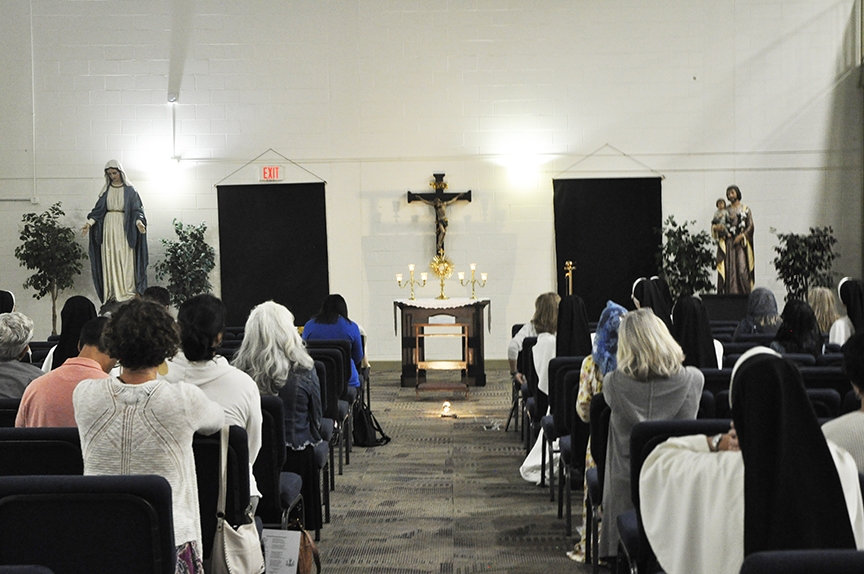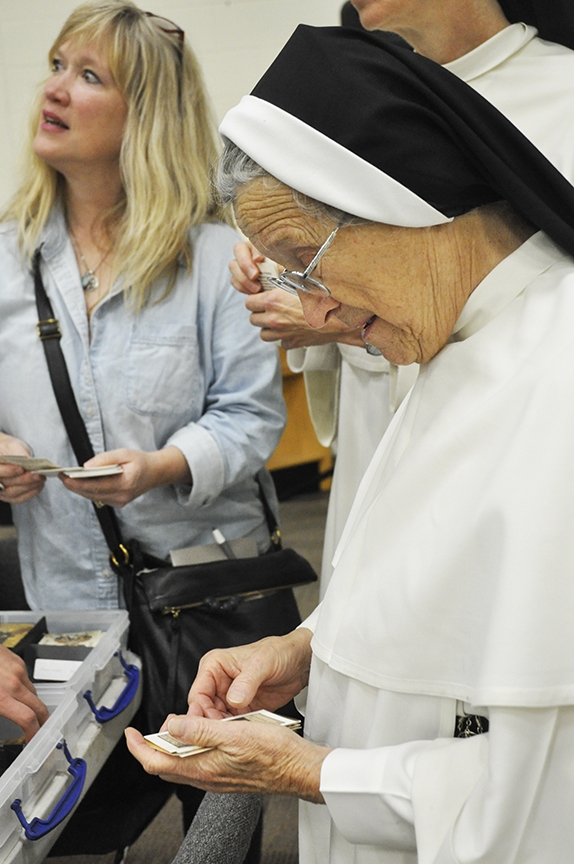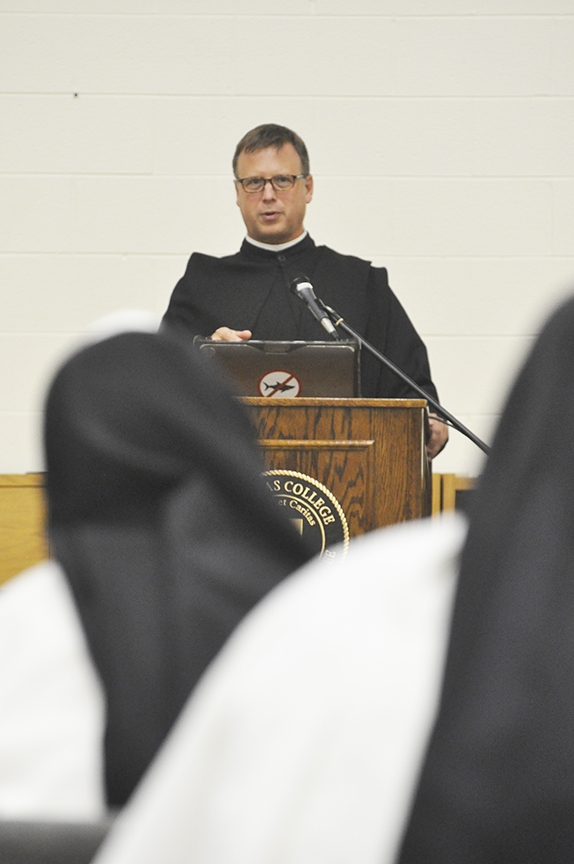
“Be prepared” is the message Father Augustine Wetta, OSB, brought to attendees of his talk “The Envy of Angels: How to Make the Most of Your Eucharistic Journey” on Thursday, Sept. 22, at Aquinas College, before they participated in Eucharistic Adoration and Benediction at the end of the evening.
To begin his talk, Father Wetta, a Benedictine monk of St. Louis Abbey in St. Louis, Missouri, explained the theory of the Black Hole by physicist John Weiler. The theory says the expansion of a closed universe will eventually slow down until it reaches a maximum size and then it will recoil before it ends in an infinitely hot, infinitely dense singularity.
“The Eucharist is that singularity. All the universe condenses into this hot spot,” Father Wetta said. “It’s the origin and the substance and the meaning and the end of my universe.
“When you look at the Eucharist, you are looking directly at God. Let me assure you as a priest and a monk, that if the Eucharist is not exactly what the Church says it is – the actual body, blood, soul and divinity of Jesus Christ; if it isn’t literally Jesus up here, up there in the flesh, then there is no God,” he said.
“I don’t mind saying that even though it scares me because it’s true,” Father Wetta said. “I believe the Eucharist is the solution to every illness, every problem, every societal ill that we are suffering from, and it’s all condensed into that hot little point in the monstrance (during Eucharistic Adoration), and I believe it so much that I would bet my life on it.”
During Eucharistic Adoration, believers confront “the limits of human reason,” he said.
“We are forced to focus on the limits of our humanity, the last things – death, hell, heaven – because concentrating on that little wafer is the entire universe. It just makes us feel small,” Father Wetta said. “We are thrillingly, terrifyingly, wonderfully, humiliatingly, efficaciously, confoundingly, embarrassingly, authoritatively small and the paradox is that in consuming it we are divinized, we are infused with divinity, we are suffused with divinity.
“The belief in the Eucharist, in Christ’s Real Presence in the Eucharist, our unwavering insistence that we literally drink Christ’s blood and eat his flesh, this is what saves us from reducing Christianity to the religion of the book,” he added. “Our identity is in our goodness, not in our sinfulness. The Eucharist itself ensures us that our flesh is imbued with divine entity. The cup of blessing that we bless is a participation in the blood of Christ. The bread that we break is a participation in the body of Christ.”
To conclude, Father Wetta , who has two degrees in theology from Oxford University, a Bachelor of Arts degree in Ancient Mediterranean Civilizations from Rice University in Houston, a Master of Arts in English from Middlebury College in Middlebury, Vermont, and for 20 years has taught English, classics, and theology at the Priory School in St. Louis, shared a time when he was reading the story of the birth of Dionysus with his students. In the story, Persephone explodes at the very sight of Zeus because “a finite creature cannot look upon an eternal being and live.”
During that class, he said, a student asked him why we don’t explode when we receive the Eucharist or gaze upon Christ during Eucharistic adoration.
“I told him I didn’t know, but it couldn’t hurt to be prepared,” Father Wetta said.
“In a few seconds, in this very room, you’re going to look upon God and live. The greatest miracle in the history of the world will be on that altar. Every day … Christ works this miracle through me,” Father Wetta said. “In a few minutes, the creator of the universe will appear to us, and we will be invited to gaze upon him. … Be prepared.
“What would you have given to be there that night when Christ said, ‘This is my body’? What would you give to be there at Cana when Jesus worked his first miracle, to stand in the presence of Mary the Queen of Heaven? What would you have given to have been there on that first Holy Thursday night, or just stood at the foot of the cross? What would you give?” he concluded. “You can be. You’ve been invited. You’re here. Let’s be prepared.”
